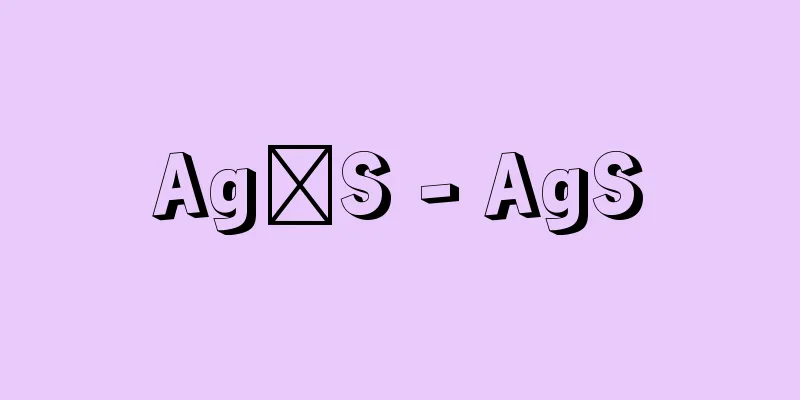Great Purification - Oharae

|
It is a purification ceremony to remove sins and impurities. While a normal purification ceremony involves reciting a short purification prayer, the Great Purification is performed by reciting or declaring a long purification prayer. The annual Great Purification is held at the Imperial Court, shrines across the country, and Shinto religious organizations on the last day of June and December, and the Great Purification on the last day of June is also called Nagoshi Purification, Minazuki Purification, or Natsu Harae. This is an event to periodically remove the sins and impurities of the past six months, and even today, Nagoshi Purification involves passing through a straw circle in various places. It is also noted in the Rikkokushi and other documents that temporary Great Purifications have been held frequently since ancient times, and are still held today when disaster strikes. The first appearance of the Great Purification appears in the Kojiki, where Emperor Chuai performed a great purification of the country when he passed away. As a system, it began with the Taiho Code (the current version is called the Yoro Code), and the Engishiki, which sets out the implementing rules for the code, as well as Gishiki, Hokuzansho, Gokeshidai, and other documents, give us a glimpse of the ancient Great Purification ceremony. According to the Jingyō (laws governing Shinto gods), the Great Purification Ceremony at the Imperial Court took place on the last day of the sixth and twelve months, when the Nakatomi offered purifying hemp and the Fubitobe of the Yamatokawachi offered purifying swords (a symbol of the law that wards off sin and impurity). At the purification site (usually the Suzaku Gate), the Nakatomi recited the Great Purification Prayer to the men and women of the various officials, and the Urabe performed the purification. The text of the recitation can be found in volume 8 of the Engishiki (the Book of the Engishiki). The text recited by the Nakatomi is also called the Nakatomi Saimon, and the current Great Purification Prayer is a partial revision of this. [Numabe Harutomo] Source: Shogakukan Encyclopedia Nipponica About Encyclopedia Nipponica Information | Legend |
|
罪(つみ)や穢(けがれ)を除くための祓式。普通の祓式は短文の祓詞(はらえことば)を奏するのに対して、大祓は長文の大祓詞を奏上もしくは宣(の)り下して行う。恒例の大祓は、宮中や全国の神社、それに神道系教団において、6月と12月の晦日(みそか)に行われ、6月晦日の大祓を名越祓(なごしのはらえ)、水無月祓(みなづきのはらえ)、夏祓などともいう。これは半年間の罪や穢を定期的に祓い除く行事で、名越祓には現在も各地で「茅の輪(ちのわ)くぐり」が行われている。また、古くから臨時の大祓もしばしば行われたことが、「六国史(りっこくし)」その他の文献に散見し、現在も災難にあったときなどに行われる。大祓の初見は『古事記』に仲哀(ちゅうあい)天皇が崩御のとき国の大祓をしたことがみえ、制度としては大宝令(たいほうりょう)(現存のものは養老令)に始まり、令の施行細則である『延喜式(えんぎしき)』、それに『儀式』『北山抄(ほくざんしょう)』『江家次第(ごうけしだい)』その他の文献によって、上代の大祓式をうかがうことができる。神祇令(じんぎりょう)によると、宮廷の大祓は、6月と12月の晦日に、中臣(なかとみ)が祓の麻(ぬさ)を、東西(やまとかわち)の文部(ふびとべ)が祓の刀(たち)(罪穢を断つ義)を奉り、祓所(多くは朱雀(すざく)門)にて、中臣が百官の男女に大祓詞を宣り下し、卜部(うらべ)が解除(はらえ)をした。その宣読文(せんどくぶん)は『延喜式』巻8にみえる。中臣が宣読したものは中臣祭文(さいもん)ともいわれ、現在の大祓詞はこれを一部改訂したものである。 [沼部春友] 出典 小学館 日本大百科全書(ニッポニカ)日本大百科全書(ニッポニカ)について 情報 | 凡例 |
Recommend
Dodge line
The strict fiscal and monetary tightening policy i...
Iijima old-fashioned lugworm - Iijima old-fashioned lugworm
... In Japan, S. labilis is known from the Kii Pe...
"Kyoto Habutae Girl's Temperament" - Today is the day of the pig embroidery
…The aunt told her husband about the curse of Nob...
Guardian of the Imperial Court
…Yorikane continued to serve as Ouchi Shugo even ...
Volvox
An alga of the family Vulgaris, order Vulgariales....
The Great Japanese Pirates of the Jiajing Period
The Wokou were pirates who operated along the coas...
Large Flowered Climber
…If there is no support, it will lie flat on the ...
Pidurutalagala
… [Nature] The geological formation of Sri Lanka ...
Kyrgyz people - Kyrgyz (English spelling)
An ethnic group with roots in North Asia, who late...
Kingfisher Day - Kingfisher Day
…Their grandfather Aiolos was the god of wind, so...
Katsuragi Sotsuhiko - Katsuragi no Sotsuhiko
Year of birth: Unknown A powerful official of the ...
Imperial Award - Onshisho
The Japan Academy Prize is awarded annually to one...
Upper brokerage - Kaminakagai
…In some cases, middlemen were involved, but beca...
Biwa crab (Biwa crab) - Lyreidus tridentatus
A decapod crustacean of the family Ranidae (illust...
Naniwa Story - Naniwa Monogatari
A record of the reputation of prostitutes. Author ...









